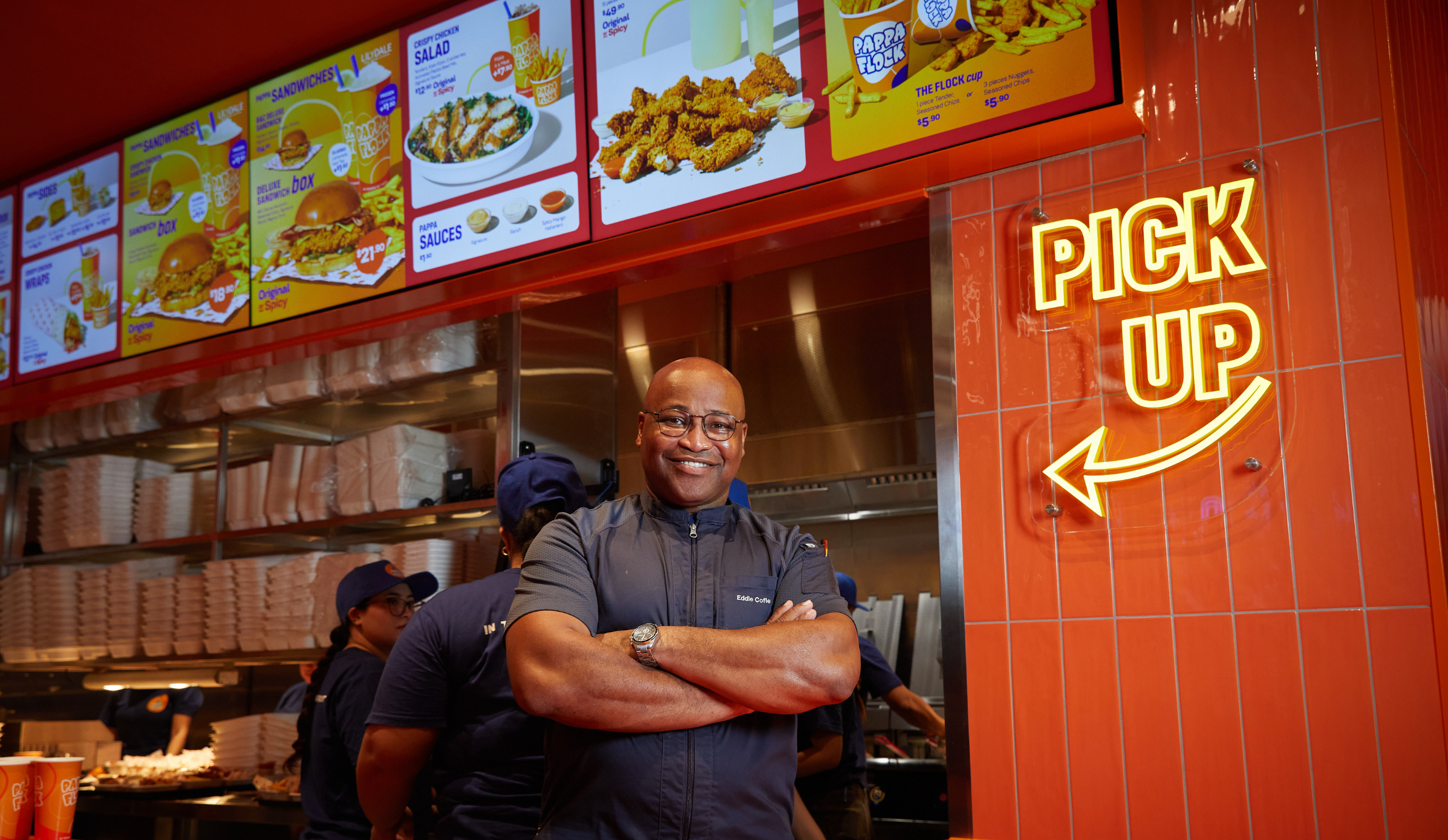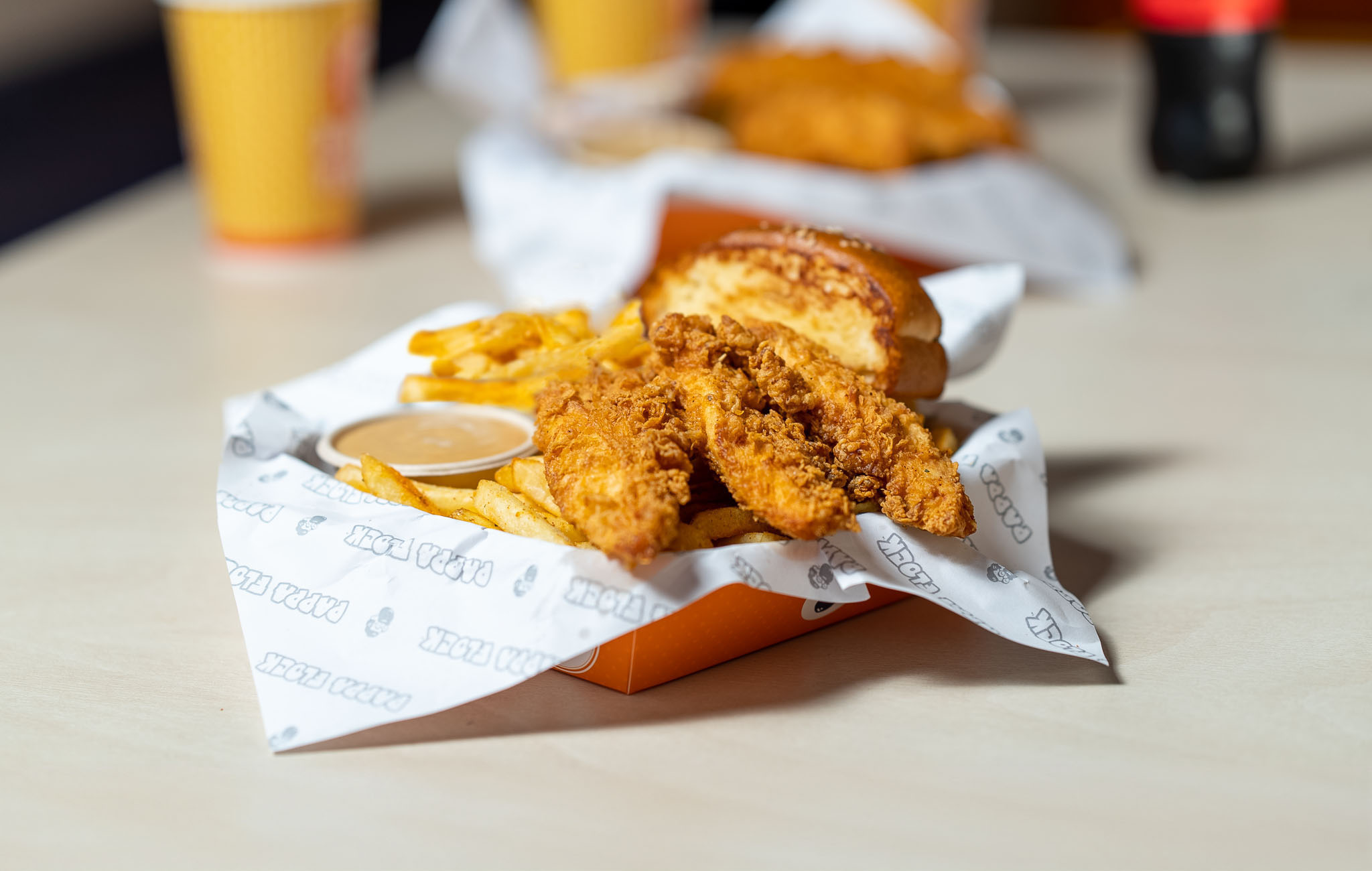Hundreds line up in Sydney to try viral crispy chicken
- Written by The Times

Pappa Flock’s crispy crunch causes a frenzy in Bondi Junction
Bondi Junction officially has chicken fever. Sydneysiders turned out in flocks over the weekend, with queues forming from 5AM - a full seven hours before doors opened - to be among the first to get their hands on Pappa Flock’s TikTok famous crispy, crunchy chicken tenders, Flock Boxes and iconic house-made lemonades.
Known for serving up seriously craveable American-style crispy chicken, Pappa Flock’s Bondi Junction opening marks the brand’s eighth store and their biggest launch yet - with fans braving the early morning chill just for a first taste.
The Aussie-owned eatery will serve up the full menu featuring Flock Boxes, handcrafted sandwiches, loaded wraps and the iconic house-made lemonade. Making its debut, is the brand new Loaded Fries: signature seasoned chips piled high with chopped chicken tenders, cheese, fresh tomato salsa, and Pappa Flock's signature sauce.
Eddie Cofie, Head Chef at Pappa Flock, is stoked to open in Bondi Junction and serve his curated menu to new and existing Flockers. When asked for his top pick, he keeps it simple: "Customers always ask me what my favourite dish is – and it’s easy: anything with our crispy crunchy chicken tenders! My insider tip? Ask for the 'jumbo sauce' off our ‘secret menu’ to get a cup of the signature sauce and get a proper dip on the tenders – it’s a total game changer.”
He adds, "And that crispy, crunchy texture everyone raves about? It really comes down to how we prepare our hero ingredient. We're meticulous about using only Lilydale Free Range chicken tenders, delivered fresh – never frozen. Plus, our team hand-breads them every single morning. That dedication to freshness is key to the Pappa Flock difference."
With space for 28 diners, Pappa Flock Bondi Junction bursts with colour and energy, featuring a custom mural by internationally recognised NSW artist Brent Smith, creatively known as Biffy Brentano. Known for his uniquely playful style, his work enhances the eatery's fun vibe. Korbel shares: “Brent has been able to capture Pappa Flock’s love for fun and boldness. We love his vibrant style and how he captures the vibe of the local community, and we can’t wait for everyone to see his latest artwork, whether they choose to dine in or grab on the go.”
Pappa Flock’s growing list of locations includes Parramatta, Westfield Miranda, Frenchs Forest, Casula, Westfield Eastgardens, Macquarie Centre, Rouse Hill and now Westfield Bondi Junction, with even more locations opening throughout 2025.






















